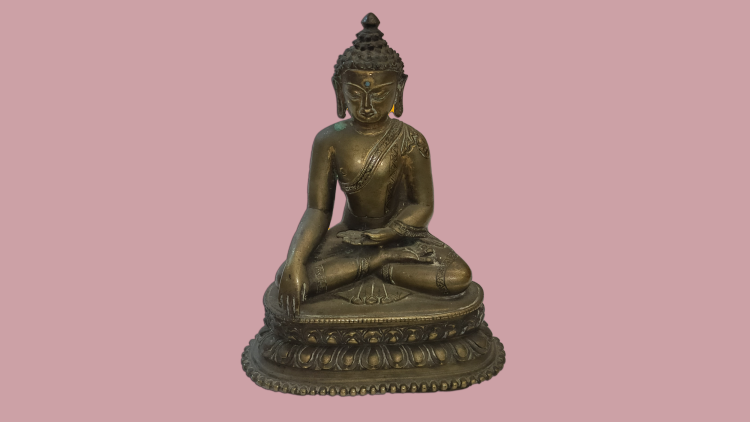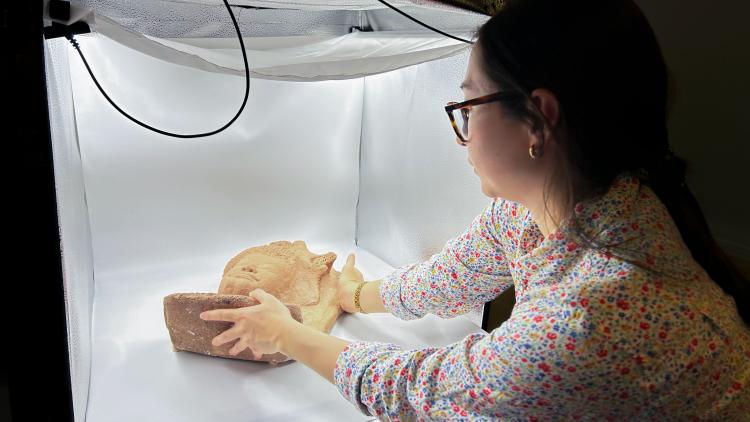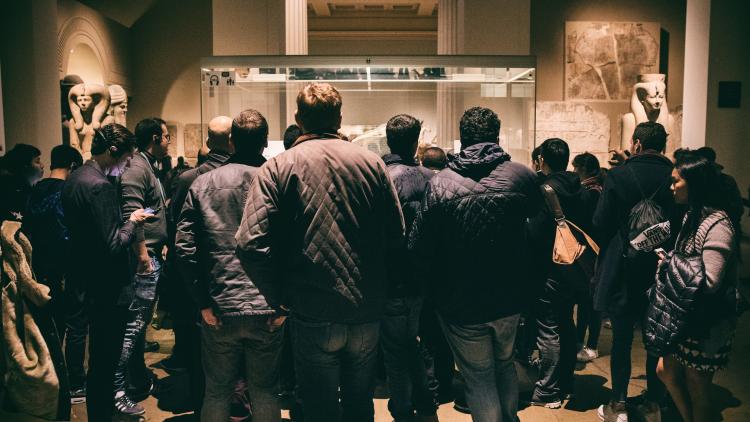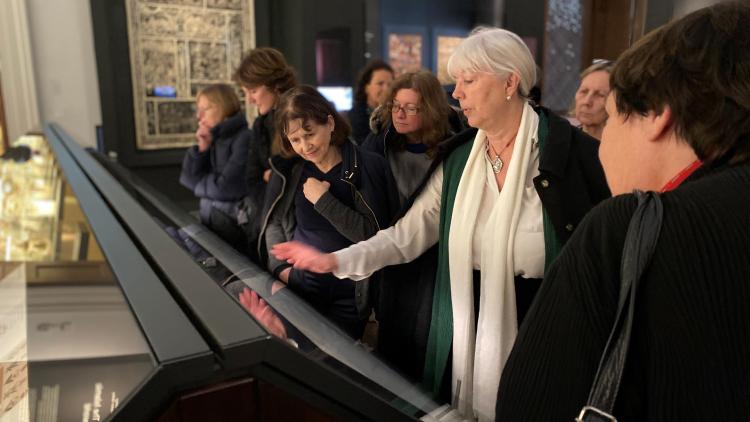MA History of Art and Archaeology of East Asia and Intensive Language
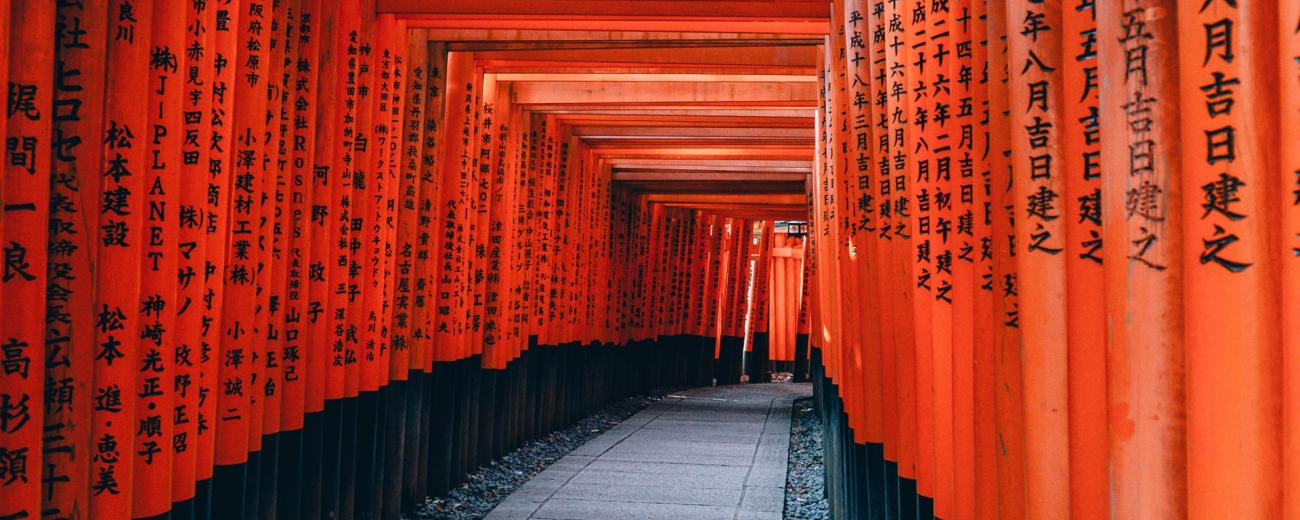

Key information
- Duration
- 2-years (full-time), 4-years (part-time, daytime only)
- Start of programme
- September
- Attendance mode
- Full-time or part-time
- Location
- Russell Square, College Buildings
- Fees
-
Home student fees: £12,220 per year
Overseas student fees: £25,320 per yearPlease note that fees go up each year.
See postgraduate fees for further details. - Course code
- MAHOAAND
- Entry requirements
-
We will consider all applications with 2:2 (or international equivalent) or higher. In addition to degree classification we take into account other elements of the application such as supporting statement. References are optional, but can help build a stronger application if you fall below the 2:2 requirement or have non-traditional qualifications.
-
Afghanistan: Qualifications (Bachelor equivalency): Master's degree
Equivalent to 2:ii: 80% or 3.3/4.0
-
Argentina: Qualifications (Bachelor equivalency): Titulo / Grado de Licenciado
Equivalent to 2:ii: 7/10
-
Australia: Qualifications (Bachelor equivalency): Bachelor degree
Equivalent to 2:ii: 2:2 or Credit or 65%
-
Austria: Qualifications (Bachelor equivalency): Bachelor degree
Equivalent to 2:ii: 2.5/5.0 and overall Pass (Bestanden)
-
Bahrain: Qualifications (Bachelor equivalency): Bachelor degree
Equivalent to 2:ii: 75% or GPA 3.0/4.0
-
Bangladesh: Qualifications (Bachelor equivalency): Bachelor’s from Bangladesh University of Engineering and Technology or Master's degree
Equivalent to 2:ii: 60% or GPA 3.0/4.0
-
Belgium: Qualifications (Bachelor equivalency): Licentiaat or Licencié
Equivalent to 2:ii: 13/20 or 65%
-
Botswana: Qualifications (Bachelor equivalency): Bachelor degree (5-year) or Master's from University of Botswana
Equivalent to 2:ii: GPA 3.5/5.0 or 65% or B- or Good
-
Brazil: Qualifications (Bachelor equivalency): Título de Bacharel / Título de Licenciado (4-year)
Equivalent to 2:ii: 7/10 or 70%
-
Brunei: Qualifications (Bachelor equivalency): Bachelor degree
Equivalent to 2:ii: Lower Second Class Honours with 50% overall
-
Bulgaria: Qualifications (Bachelor equivalency): Bachelor degree
Equivalent to 2:ii: 4.3/6
-
Cameroon: Qualifications (Bachelor equivalency): Diplôme d'Ingénieur/ Diplôme d'Études Supérieures de Commerce (5-year)
Equivalent to 2:ii: 12-13 assez bien (fair); 70-74; or B+
-
Canada: Qualifications (Bachelor equivalency): Bachelor degree
Equivalent to 2:ii: GPA 3.0/4.0 or 74-77% or overall B
-
China Qualifications (Bachelor equivalency): Bachelor degree (4-year)
Equivalent to 2:ii:
73% or 2.6/4.0 (C9 unis)
75% or 2.8/4.0 (Double First unis)
80% or 3.25/4.0 (all other unis) -
Colombia: Qualifications (Bachelor equivalency): Licenciado / Titulo (4-year)
Equivalent to 2:ii: 3.5/5.0
-
Croatia: Qualifications (Bachelor equivalency): Baccalaureus / Baccalaurea (Bachelor degree)
Equivalent to 2:ii: Overall score 3/5
-
Cyprus: Qualifications (Bachelor equivalency): Bachelor degree
Equivalent to 2:ii: 6.5/10
-
Czech Republic: Qualifications (Bachelor equivalency): Bachelor degree (180 ECTS)
Equivalent to 2:ii: 1.75/4.0 or High C 'dobre’ (good)
Information for prospective students from the Czech Republic
-
Denmark: Qualifications (Bachelor equivalency): Bachelor degree
Equivalent to 2:ii: 7/12 or 8/13 or grade C
-
Egypt: Qualifications (Bachelor equivalency): Bachelor degree
Equivalent to 2:ii: 70% or 3.0/4.0
-
Estonia: Qualifications (Bachelor equivalency): Bakalaurusekraad / University Specialist's Diploma / Professional Higher Education Diploma
Equivalent to 2:ii: 4.0/5.0
-
Finland: Qualifications (Bachelor equivalency): Bachelor / Kandidaatti / Kandidat (180 ECTS credits)
Equivalent to 2:ii: 3/5 or 2/3
-
France: Qualifications (Bachelor equivalency): Licence or Diplôme from a grande école
Equivalent to 2:ii: 11.5 out 20
-
Gambia: Qualifications (Bachelor equivalency): Master's degree (2-year)
Equivalent to 2:ii: GPA 3.0/4.3 or 64% or B
-
Germany: Qualifications (Bachelor equivalency): Bachelor degree (180 ECTS)
Equivalent to 2:ii: 2.6/5
-
Ghana: Qualifications (Bachelor equivalency): Bachelor degree
Equivalent to 2:ii: 2:2 (Second Class Lower Division) or GPA 3.25/5.0 or 60%
-
Greece: Qualifications (Bachelor equivalency): Bachelor degree
Equivalent to 2:ii: 6.50/10
-
Hong Kong: Qualifications (Bachelor equivalency): Bachelor degree
Equivalent to 2:ii: Upper second class or GPA 2.7/4.0 or 75% or B Minus
-
Hungary: Qualifications (Bachelor equivalency): Bachelor (Alapfokozat) or Diploma (Egyetemi Oklevél)
Equivalent to 2:ii: 3.5/5.0
-
Iceland: Qualifications (Bachelor equivalency): Bachelor degree (Baccalaureus or Bakkalarprof)
Equivalent to 2:ii: 7.0 out of 10
-
India: Qualifications (Bachelor equivalency): Bachelor degree
Equivalent to 2:ii: CGPA: 55-60% or 5.5/10 - 6.0/10
-
Iraq: Qualifications (Bachelor equivalency): Bachelor degree (Licence/Karshani)
Equivalent to 2:ii: 0.7
-
Israel: Qualifications (Bachelor equivalency): Bachelor degree
Equivalent to 2:ii: 70% or C+
-
Italy: Qualifications (Bachelor equivalency): Laurea (180 ECTS)
Equivalent to 2:ii: 100/110
-
Japan: Qualifications (Bachelor equivalency): Bachelor degree
Equivalent to 2:ii: 70% or C+ or 3.0
-
Jordan: Qualifications (Bachelor equivalency): Bachelor degree
Equivalent to 2:ii: 3.0/4.0 or 70%
-
Kazakhstan: Qualifications (Bachelor equivalency): Bachelors (Bakalavr Diplomi) or Specialist Diploma
Equivalent to 2:ii: GPA 3.0/4.0 or GPA 4.0/5.0 or B
-
Kenya: Qualifications (Bachelor equivalency): Bachelor degree
Equivalent to 2:ii: 2:2 or 60%
-
Kuwait: Qualifications (Bachelor equivalency): Bachelor degree
Equivalent to 2:ii: 3.0/
-
Latvia: Qualifications (Bachelor equivalency): Bakalaura Diploms (Bachelor's) or Profesionālā Bakalaura Diploms
Equivalent to 2:ii: 7/10
-
Lebanon: Qualifications (Bachelor equivalency): Bachelor degree / Licence
Equivalent to 2:ii: 75% or Grade B-/C+ or GPA 2.8/4.0 or 14/20
-
Liberia: Qualifications (Bachelor equivalency): Master's degree
Equivalent to 2:ii: 75% or 2.8/4.0
-
Libya: Qualifications (Bachelor equivalency): Bachelor Degree from selected institution
Equivalent to 2:ii: 75% or GPA 3.0/4.0
-
Lithuania: Qualifications (Bachelor equivalency): Bachelors / Bakalauro (180 ECTS)
Equivalent to 2:ii: 7.5/10
-
Malawi: Qualifications (Bachelor equivalency): Master's degree
Equivalent to 2:ii: 70% or GPA 3.0/4.0
-
Malaysia: Qualifications (Bachelor equivalency): Bachelor degree
Equivalent to 2:ii: 3.0/4.0 or B (Class 2 Division 2)
-
Malta: Qualifications (Bachelor equivalency): Bachelor degree
Equivalent to 2:ii: Lower Second Class with 65% or Category IIB
-
Mexico: Qualifications (Bachelor equivalency): Titulo de Licenciado
Equivalent to 2:ii: 8/10 or 80%
-
Morocco: Qualifications (Bachelor equivalency): Licence / Licence d'Etudes Fondamentales / Licence Professionnelle
Equivalent to 2:ii: 13/20
-
Nepal: Qualifications (Bachelor equivalency): Master's degree / Bachelor degree (4-year)
Equivalent to 2:ii: 70%
-
Netherlands: Qualifications (Bachelor equivalency): Bachelor degree
Equivalent to 2:ii: 6.5/10 or GPA 3.0
-
New Zealand: Qualifications (Bachelor equivalency): Bachelor degree
Equivalent to 2:ii: Majority of credited modules B- or above
-
Nigeria: Qualifications (Bachelor equivalency): Bachelor degree
Equivalent to 2:ii: Lower Second Class or 55% or GPA 3.0/5.0 or 2.5/4.0 or 4.0/7.0
-
Norway: Qualifications (Bachelor equivalency): Bachelors / Bachelorgrad (180 ECTS) or Candidatus /a magisterii
Equivalent to 2:ii: Grade C (with at least 80 ECTS) at grade B or 3.2
-
Oman: Qualifications (Bachelor equivalency): Bachelor degree
Equivalent to 2:ii: 3.0/4.0
-
Pakistan: Qualifications (Bachelor equivalency): Bachelor (4-year) / Master's from HEC recognised institution
Equivalent to 2:ii: CGPA 2.7 or 65%
-
Philippines: Qualifications (Bachelor equivalency): Master’s from recognised institution or Centre of Excellence / Bachelor from prestigious institution or Centre of Excellence
Equivalent to 2:ii:
Prestigous Universities: GPA 3.3/4.0 or 1.75/5.0 or Grade B or 83%
Recognised Universities: GPA 3.5/4.0 or 2.0/5.0 or Grade B or 87% -
Poland: Qualifications (Bachelor equivalency): Licencjat or Inżynier (3-year)
Equivalent to 2:ii: 4.25/5
-
Portugal: Qualifications (Bachelor equivalency): Licenciado (180 ECTS)
Equivalent to 2:ii: 15/20
-
Qatar: Qualifications (Bachelor equivalency): Bachelor degree
Equivalent to 2:ii: GPA 3.0/4.0 or 3.5/5.0 or 70% or 7/10
-
Romania: Qualifications (Bachelor equivalency): Diplomă de Licenţă / Diplomă de Inginer / Diplomă de Urbanist Diplomat
Equivalent to 2:ii: 8/10
-
Russia: Qualifications (Bachelor equivalency): Diplom Bakalavra or Specialist Diploma
Equivalent to 2:ii: 3.8/5.0
-
Rwanda: Qualifications (Bachelor equivalency): Bachelor (4-year)
Equivalent to 2:ii: Lower Second Class Honours or 65-69% or 14/20
-
Saudi Arabia: Qualifications (Bachelor equivalency): Bachelor degree
Equivalent to 2:ii: GPA of 3.0/4.0 or 3.5/5.0 or overall 70%
-
Singapore: Qualifications (Bachelor equivalency): Bachelor degree
Equivalent to 2:ii: CAP 3.5/5.0 or 3.0/4.0
-
Slovakia: Qualifications (Bachelor equivalency): Bakalár / Bachelor
Equivalent to 2:ii: 70% or 2.0 overall or C
-
South Africa: Qualifications (Bachelor equivalency): Bachelor (4-year)
Equivalent to 2:ii: 60%
-
South Korea: Qualifications (Bachelor equivalency): Bachelor degree
Equivalent to 2:ii: GPA 2.7/4.0 or 3.0/4.3 or 3.3/4.5
-
Spain: Qualifications (Bachelor equivalency): Título de Grado / Título de Licenciado / Título de Ingeniero / Titulo de Arquitecto
Equivalent to 2:ii: 6.5/10 or GPA 1.75/4.0
-
Sri Lanka: Qualifications (Bachelor equivalency): Bachelor Special Degree or Professional Degree (4-year)
Equivalent to 2:ii: 55% or 2:2 or GPA 3.0/4.0
-
Sudan: Qualifications (Bachelor equivalency): Bachelor (5-year)
Equivalent to 2:ii: 65%+ or B
-
Sweden: Qualifications (Bachelor equivalency): Bachelor degree / Kandidatexamen / Yrkesexamen
Equivalent to 2:ii: B (90 credits) and C (90 credits) or Very Good (70 credits) and Good (110 Credits) or C (180 credits)
-
Switzerland: Qualifications (Bachelor equivalency): Diplom / Diplôme / Lizentiat / Staatsdiplom / Diplôme d’Etat
Equivalent to 2:ii: Overall 4.5/6 or 7/10 or 2.5/5
-
Syria: Qualifications (Bachelor equivalency): Licence / al-ijaza-fi / Bachelor
Equivalent to 2:ii: 70%+ or 'Good'
-
Taiwan: Qualifications (Bachelor equivalency): Bachelor degree
Equivalent to 2:ii: 68-70% or GPA 2.8/4.0-3.0/4.0
-
Thailand: Qualifications (Bachelor equivalency): Bachelor degree
Equivalent to 2:ii: GPA 3.0/4.0
-
Tunisia: Qualifications (Bachelor equivalency): Diplôme National d'Ingénieur / Diplôme National d'Architecture / Licence / Maîtrise
Equivalent to 2:ii: 12 out of 20
-
Turkey: Qualifications (Bachelor equivalency): Lisans Diplomasi
Equivalent to 2:ii: GPA 2.6/4 from the top universities and 3.0/4 from all others
-
Uganda: Qualifications (Bachelor equivalency): Bachelor degree
Equivalent to 2:ii: 2:2 (Lower Second) or B or GPA 3.0/5.0
-
Ukraine: Qualifications (Bachelor equivalency): Bachelor degree or Specialist Diploma
Equivalent to 2:ii: 8/12 or 3.8/5
-
United Arab Emirates: Qualifications (Bachelor equivalency): Bachelor degree
Equivalent to 2:ii: GPA 3.0/4.0 or 3.2/5.0
Information for prospective students from the United Arab Emirates
-
United States of America: Qualifications (Bachelor equivalency): Bachelor degree
Equivalent to 2:ii: GPA 3.0/4.0
-
Vietnam: Qualifications (Bachelor equivalency): Bachelor degree (4-year)
Equivalent to 2:ii: Overall score of 6.5/10
-
Yemen: Qualifications (Bachelor equivalency): Master's degree
Equivalent to 2:ii: Overall 'Good' (71-77%) or Aden University 80-83% (or 3.0/4.0)
-
Zambia: Qualifications (Bachelor equivalency): Master's degree
Equivalent to 2:ii: 65% or B or Credit or GPA 1.7/2.5 or 3.3/5.0
-
Zimbabwe: Qualifications (Bachelor equivalency): Bachelor degree
Equivalent to 2:ii: 2:2 or 65%
-
See international entry requirements and English language requirements
Course overview
The MA History of Art and Archaeology of East Asia and Intensive Language is a two-year programme, combining the strengths of the MA History of Art and Archaeology of East Asia with intensive language training in Chinese, Japanese or Korean.
You will study the arts of China, Korea and Japan, exploring a wide range of East Asian arts and material culture, from Chinese archaeology to Japanese prints, Korean installation works to Buddhist monuments, in historical and contemporary periods.
By the end of the programme, which includes a summer language school abroad, you will have received sufficient instruction to reach near-proficiency in the language.
Why study MA History of Art and Archaeology of East Asia at SOAS?
- SOAS is ranked 15th in the UK for Arts and Humanities (QS World University Rankings 2023)
- We are ranked 12th in the UK for Modern Languages (QS World University Rankings 2023)
- We are ranked 6th in the UK for employability (QS World University Rankings 2023)
- We partner with the British Council to offer a School of Arts student an internship at the Venice Biennale
- We partner with the Chu Te-Chun Foundation to offer a paid internship at the Venice Biennale
- We offer exclusive School of Arts-led internships at the Rietberg Museum, Zurich (2 places available)
- You can apply for a SOAS Co-Creator internship in the Special Collections of the SOAS Library
- Internships, field-trips, museum and storage visits, talks by curators, artists and other practitioners
Structure
Students must take 315 credits in total, comprised of 255 taught credits (45 of which are taught abroad as part of a Summer School) and a 60-credit dissertation as outlined below.
Year 1: Students on the 2-year Intensive Language programmes take 60 credits of intensive language instruction and 60 credits in the discipline. During the summer, they participate in a Summer School abroad.
Year 2: Students take another 30 language credits as well as 60 credits in the discipline; they also complete their dissertation in the discipline.
Occasionally the availability of optional modules changes as a result of staffing and other circumstances. Students who had signed up for such modules will be notified as soon as possible and given the opportunity to choose from available alternatives.
The Department of East Asian Languages and Cultures and the School of Languages, Cultures and Linguistics offer additional information on the intensive language part of the programme.
Important notice
The information on the website reflects the intended programme structure against the given academic session. The modules are indicative options of the content students can expect and are/have been previously taught as part of these programmes.
However, this information is published a long time in advance of enrolment and module content and availability is subject to change.
Year 1 (2-years full-time)
Students take the following compulsory module.
And
Students take modules to the value of 15 credits from list A.
And
Students take modules to the value of 15 credits from list B.
And
Students take modules to the value of 15 credits from list A and/or B.
And
Language component 60 credits: Students take 60 credits in the selected language.
Summer abroad
Summer School 45 credits: Students participate in a Summer School abroad for the selected language.
Year 2 (two years full-time)
Students take the following compulsory module.
And
Students take modules to the value of 15 credits from list A.
And
Students take modules to the value of 15 credits from list B.
And
Students take modules to the value of 30 credits from list A and/or list B and/or the list of postgraduate open options.
And
Language component 30 credits: Students take 30 credits in the selected language.
List A: China and Cross-regional
List B: Japan/Korea/Theory-based modules
Teaching and learning
Teaching consists of a combination of lectures and seminars. Classes are normally between two and three hours per week for each course. Teaching methods include lectures with discussion, seminars (at which students present papers) and museum visits. Students at all levels are expected to take an active part in class presentations. A particularly important element is the training of the student's visual memory.
In addition to their studies on the MA programme, students at SOAS can participate in a wide range of research seminars, lectures and conferences that regularly take place in the School and in the University of London.
Contact hours
All Masters programmes consist of 180 credits, made up of taught modules of 30 or 15 credits, taught over 10 or 20 weeks, and a dissertation of 60 credits. The programme structure shows which modules are compulsory and which optional.
As a rough guide, 1 credit equals approximately 10 hours of work. Most of this will be independent study, including reading and research, preparing coursework, revising for examinations and so on. It will also include class time, which may include lectures, seminars and other classes. Some subjects, such as learning a language, have more class time than others. At SOAS, most postgraduate modules have a one hour lecture and a one hour seminar every week, but this does vary.
Assessment
For each of the taught modules, assessment is primarily by course work and a range of assessment methods are employed. These usually consist of short essays, reports, presentations, annotated bibliographies, journal entries or a combination thereof. Some modules will also be assessed by unseen examination in the form of a slide test. For details on how modules are assessed, consult the individual module page on the SOAS website.
Additionally, for each HAA degree pathway, 60 credits (of 180) are assigned to a dissertation which consists of three assessed components: one 300-word summary of the research project (worth 5%), one 700-word annotated bibliography (worth 9%) and a dissertation of 9,000-10,000 words (worth 86%).
SOAS Library
SOAS Library is one of the world's most important academic libraries for the study of Africa, Asia and the Middle East, attracting scholars from all over the world. The Library houses over 1.2 million volumes, together with significant archival holdings, special collections and a growing network of electronic resources.
Scholarships
Employment
Students in the School of Arts develop a critical and theoretically informed approach to global arts and culture. In addition to an intercultural awareness and practical expertise, graduates gain a wide portfolio of transferable skills which are especially sought after in the creative and cultural industries.
Recent School of Arts graduates have been hired by:
- Christie’s
- Christine Park Gallery
- Crisis
- Design Museum
- Hong Kong Museum Of Art
- India Foundation For The Arts
- Japanese Gallery
- Museum of East Asian Art
- Music in Detention
- National Gallery
- Pan Arts
- People Projects Culture & Change
- Roundhouse Trust
- Somerset House Trust
- Songlines Magazine
- Sotheby's
- South Asian Art UK
- Stratford Circus Arts Centre
- Taiwan Embassy
- The Alliance for Global Education
- The British Embassy
- The National Museum Of Korea
- The Royal Collection
- Victoria and Albert Museum
Find out about our Careers Service.


